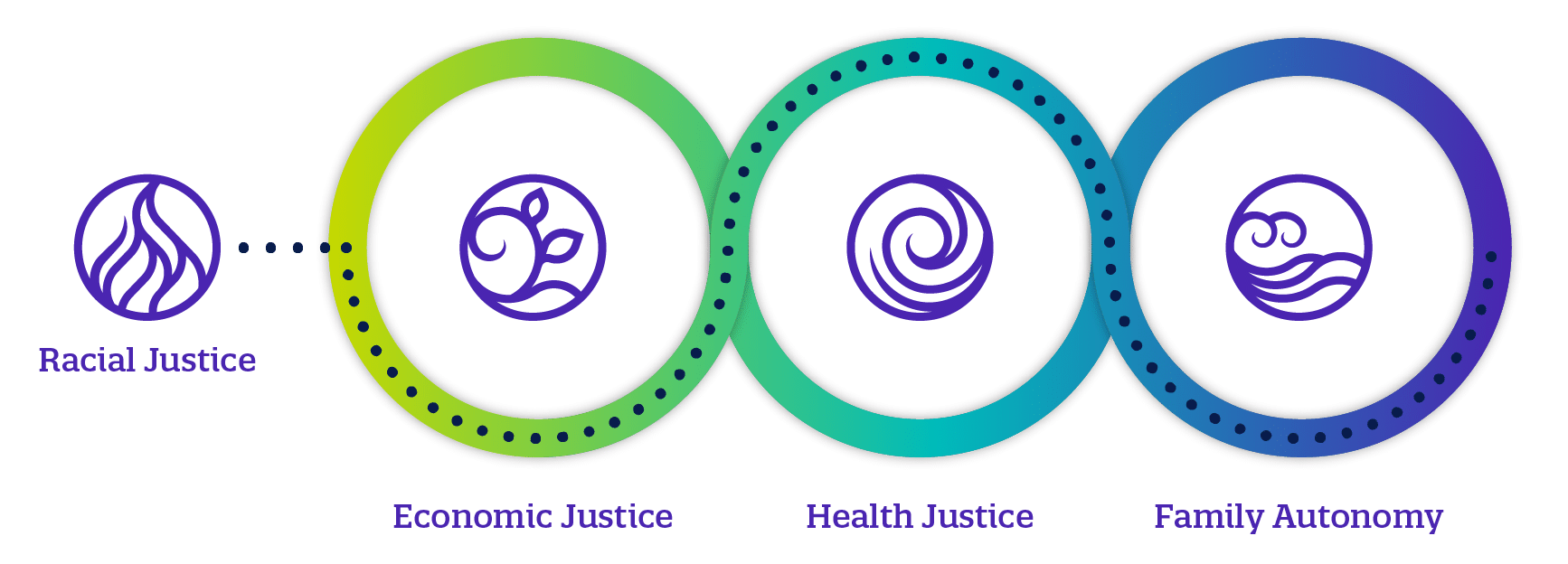Translating Ideas Into Action
Our Three-Year Strategic Plan
Our strategic plan is organized around our North Star, which is made up of three interconnected dimensions— economic justice, health justice, and family autonomy— and racial justice as the throughline.
These interconnected dimensions of our work represent our North Star:

Economic Justice
Every family should have the resources they need. Our economic justice work strives to ensure that all children, youth, and families have the economic resources to afford the necessities, spend time with their families and loved ones, fully participate in their communities, and achieve their visions for their futures.
Health Justice
Every family should have opportunities for good health. Our health justice work strives to ensure that all children, youth, and families have access to options for high-quality, culturally affirming services that support their health and well-being. We also support communities in creating conditions that promote and prioritize health.
Family Autonomy
Every family should have the rights, agency, and resources needed to make decisions for themselves. Our family autonomy and justice work strives to ensure that people can thrive in their families and communities and that every child is surrounded and supported by loving and nurturing adults.
Everything we do, every action we take, works to advance the promise of economic justice, health justice, and family autonomy—with an unwavering commitment to racial justice.
Join Us
Our North Star is bold and calls for the transformation of complex systems that have caused generations of harm through oppressive policy and practices. Such complexity calls for an ecosystem approach—one that is multidisciplinary and cross-sector and authentically engages the individuals, families, and communities it aims to serve.
This strategic plan is an invitation to our partners—and to those of you we have not worked with yet but who share our commitments—to join together to improve the health, happiness, and success of every young person, family, and community.



